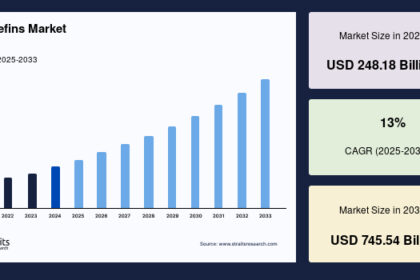In the ever-evolving world of business and finance, companies are shifting from traditional accounting methods to integrated digital systems for more accuracy, efficiency, and real-time financial visibility. Among the most popular and powerful ERP (Enterprise Resource Planning) systems available today is SAP FICO, a critical module within SAP that manages financial and controlling processes seamlessly. If you’re looking to understand how SAP FICO revolutionizes financial management compared to traditional accounting, enrolling in SAP FICO Training in Hyderabad at Version IT can provide you with both conceptual clarity and practical experience.
Let’s explore in detail how SAP FICO stands apart from conventional accounting systems and why it’s becoming a preferred choice for modern enterprises.
Understanding Traditional Accounting Systems
Before diving into the differences, it’s important to understand what traditional accounting systems are. Traditional accounting typically involves manual or semi-automated methods for recording financial transactions, generating reports, and maintaining ledgers. Many businesses still use standalone software like Tally, QuickBooks, or spreadsheets for bookkeeping and financial management.
While these systems serve small and medium-sized businesses adequately, they often face limitations when dealing with large volumes of data, multiple business units, or complex financial operations. They primarily focus on recording transactions rather than integrating business functions across departments like sales, purchasing, and production.
What is SAP FICO?
SAP FICO stands for Financial Accounting (FI) and Controlling (CO). It is an essential module within the SAP ERP system, designed to help businesses manage their financial transactions and internal reporting efficiently.
-
The FI (Financial Accounting) component handles external accounting, including financial statements, accounts receivable/payable, and asset management.
-
The CO (Controlling) component manages internal cost tracking, budgeting, profit analysis, and performance monitoring.
SAP FICO integrates finance with other business processes, ensuring that all data flows seamlessly between departments. This integration provides management with accurate, real-time financial insights for better decision-making.
At Version IT, a leading institute for SAP FICO Training in Hyderabad, students are trained not only on system navigation and configuration but also on how SAP FICO connects finance with operations across the enterprise.
Key Differences Between SAP FICO and Traditional Accounting Systems
1. Integration vs. Isolation
Traditional accounting systems usually operate in isolation. For example, the accounting department might use one system, while sales and inventory use different ones. As a result, data sharing between departments becomes manual, time-consuming, and prone to errors.
In contrast, SAP FICO integrates seamlessly with other SAP modules such as SAP MM (Materials Management), SAP SD (Sales and Distribution), and SAP PP (Production Planning). This means every transaction, whether it’s a sale, purchase, or production activity, automatically updates financial records in real-time.
Example: When a product is sold, the revenue entry, cost of goods sold, and inventory reduction are updated automatically in SAP FICO, eliminating manual reconciliation.
2. Real-Time Data Processing
Traditional accounting systems often require manual data entry and batch processing at the end of the day or month. This delay can result in outdated reports and slower decision-making.
SAP FICO, on the other hand, provides real-time financial updates. Every transaction in the organization is instantly reflected in financial reports, allowing businesses to monitor their performance and cash flow dynamically.
During SAP FICO Training in Hyderabad at Version IT, learners are taught how real-time data integration helps organizations make timely and accurate financial decisions.
3. Accuracy and Error Reduction
Manual systems or disconnected software increase the risk of human error — incorrect entries, missing data, or reconciliation issues. Traditional systems require accountants to cross-verify information across multiple ledgers and statements.
SAP FICO automates much of this process. It uses validation checks, built-in controls, and integration features that ensure data consistency across all modules. Errors are detected and flagged immediately, improving the reliability of financial statements.
4. Scalability and Global Compliance
Traditional accounting tools often struggle when organizations expand internationally or handle multiple currencies. Each region might use a different accounting system, leading to complex consolidation efforts.
SAP FICO is designed for global operations. It supports multiple currencies, languages, and country-specific accounting standards (such as IFRS, US GAAP, and Indian GAAP). This makes it the perfect solution for multinational corporations and growing enterprises.
Version IT ensures that learners understand how SAP FICO handles global financial processes, making them job-ready for international SAP projects.
5. Comprehensive Reporting and Analytics
In traditional systems, report generation often requires manual compilation of data from various sources, which is time-consuming and less flexible.
SAP FICO provides advanced reporting tools that allow users to create detailed financial statements, profit and loss reports, and cost analyses instantly. Users can drill down from summary reports to transaction-level details with just a few clicks.
Moreover, SAP FICO integrates with SAP BI (Business Intelligence) and analytics tools, giving organizations deep insights into their financial health.
6. Automation and Efficiency
Traditional accounting depends heavily on manual inputs and periodic reconciliations. This not only consumes time but also increases administrative costs.
With SAP FICO, processes such as asset depreciation, bank reconciliation, and tax calculation are automated. Automation minimizes human intervention and enhances efficiency.
Learners at Version IT are trained to configure these automation features, making them capable of optimizing real-world business processes.
7. Security and Audit Control
Traditional systems often lack advanced security mechanisms, making them vulnerable to unauthorized access or manipulation.
SAP FICO, however, includes robust security and audit control features. Role-based access ensures that only authorized personnel can view or modify specific financial data. The system also maintains detailed audit trails, which are essential for compliance and transparency.
Why Organizations Prefer SAP FICO Over Traditional Systems
Businesses today need more than just bookkeeping tools. They require a centralized, intelligent financial system that supports decision-making, enhances productivity, and ensures compliance. SAP FICO meets all these needs and more.
With features like real-time integration, automation, scalability, and global compatibility, SAP FICO empowers organizations to maintain complete control over their financial performance.
That’s why many accounting professionals, finance graduates, and even non-finance individuals are choosing to learn SAP FICO to upgrade their skills and enhance career opportunities.
Learn SAP FICO at Version IT – Hyderabad’s Leading Training Institute
If you’re inspired to transition from traditional accounting to modern ERP-based financial management, Version IT offers the most comprehensive SAP FICO Training in Hyderabad.
At Version IT, you’ll learn:
-
The complete configuration of FI and CO modules
-
Real-time project implementations
-
Integration with other SAP modules
-
Financial reporting and business analytics
-
Interview and certification preparation
The institute’s practical approach, expert trainers, and real-time examples ensure that learners become industry-ready SAP FICO professionals capable of handling global financial operations efficiently.
Conclusion
While traditional accounting systems focus primarily on recording transactions, SAP FICO transforms financial management into an integrated, automated, and strategic function. Its ability to connect every aspect of business operations, deliver real-time insights, and ensure global compliance makes it far superior to legacy systems.
Whether you are an accounting professional aiming to upskill or a non-finance individual aspiring to enter the SAP domain, SAP FICO Training in Hyderabad at Version IT offers the perfect foundation to build a rewarding and future-proof career in finance and ERP consulting.



